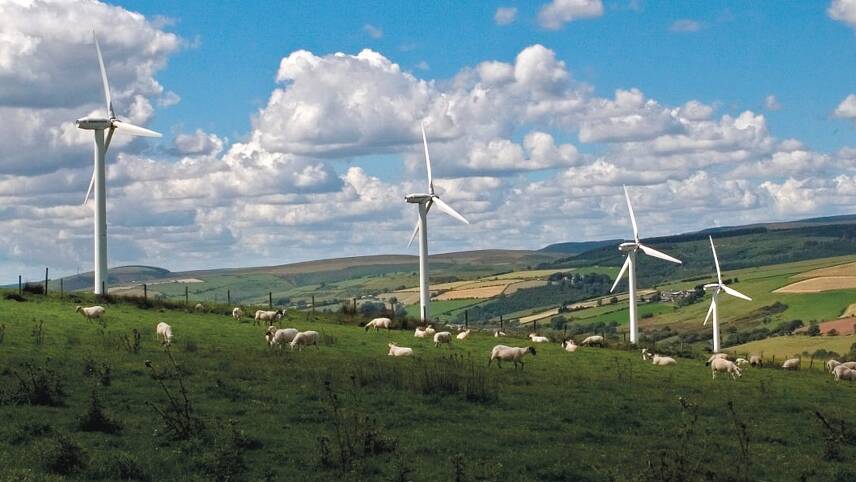Member only content free until 26/05/2024
To continue reading this article and enjoying free access to all Utility Week’s content up to the 26/05/2024 Register today!
Ready to become a member?

Fully decarbonising the power sector by 2035 is a huge task facing the utilities sector, but one which promises a significant prize if the UK can get it right, argues Ben Wilson, chief strategy officer at National Grid. Writing for Utility Week, Wilson outlines what needs to be done to take advantage of the major economic potential of achieving net zero.
Fully decarbonising the power sector by 2035 will require decisive action but if the UK can get this right, the prize is significant.
Investing in Great Britain’s energy networks offers substantial economic benefits and could contribute an average of £18.4bn annually to GDP and support over 220,000 jobs each year to 2035.
Yet, while the UK has the talent and ambition, a step-change is needed if it is to compete in the race for clean investment and not be left behind. 
Our ability to realise these economic opportunities, which are crucial for future prosperity, is held back by several challenges. As well as complex and outdated planning structures, and necessary regulatory reform underway, the UK lacks capacity – both in skills and supply chain – to deliver at the pace and scale required.
Critically, there is no time to waste.
The UK is not alone in the march to net zero, the Inflation Reduction Act is driving action in the US, and the EU’s Net Zero Industry Act is having a similar effect. In fact, demand and competition for clean energy products, services and skills has grown rapidly as countries push to meet their respective decarbonisation targets. At the same time, the UK energy sector faces a significant skills challenge due to increasing demand, a loss of existing talent, a lack of diversity and a diminishing pipeline of students choosing STEM subjects.
Much has already been done to tackle this, including the government’s recent Powering Up Britain strategy. However, given the degree of the change needed is at a level not seen for generations, a far greater level of investment is required over the next decade and beyond.
Galvanising this investment necessitates a transformative change, as the right approach will unlock huge economic, social and environmental benefits.
National Grid has released its ‘Delivering for 2035: Upgrading the grid for a secure, clean and affordable energy future’ report. The paper outlines five priority areas which require action if the UK is to be ready for the scale of transformation needed. With one of these key priorities being the development of supply chain capacity alongside a flourishing UK skills pipeline.
Accelerating the delivery of infrastructure demands a different approach to supply chain development and engagement, including a need to collaborate, cooperate and create greater standardisation to drive efficiency.
We also need a jobs and skills revolution up and down the country. Decarbonisation of the sector will be people powered, and this requires an army of future net zero energy talent from a diverse range of backgrounds.
Attracting this talent requires an educational and training system equipped to inspire. Embedding net zero across relevant subjects at all ages, as well as upskilling the teaching workforce is one way to do this. Taking action across the sector is another. The net zero energy sector is awe-inducing and offers a plethora of jobs that have a real meaningful purpose. Communicating this will be how we inspire future generations of talent. At National Grid we have established Grid for Good, an energy industry community programme that has supported over 4,200 young people, aged 16-25, to date, providing them with upskilling and job opportunities, as well as inspiring insights into the industry.
When it comes to supply chain and skills, action should also be taken to ensure the UK is seen as an attractive place to invest. A targeted package of incentives could attract clean energy manufacturers and quality training providers to locate and expand their sites in the UK. Given the volume of build needed in networks alone, there is a significant opportunity to develop some of the associated manufacturing capability in the UK.
The energy transition is the economic opportunity of the 21st century. If together we get this right, it will not only deliver greater energy security and lower bills for Britons, alongside jobs for future generations, it will also deliver substantial fiscal benefits to the country. However, if the UK is to realise this economic prize, there is no time to lose.




Please login or Register to leave a comment.